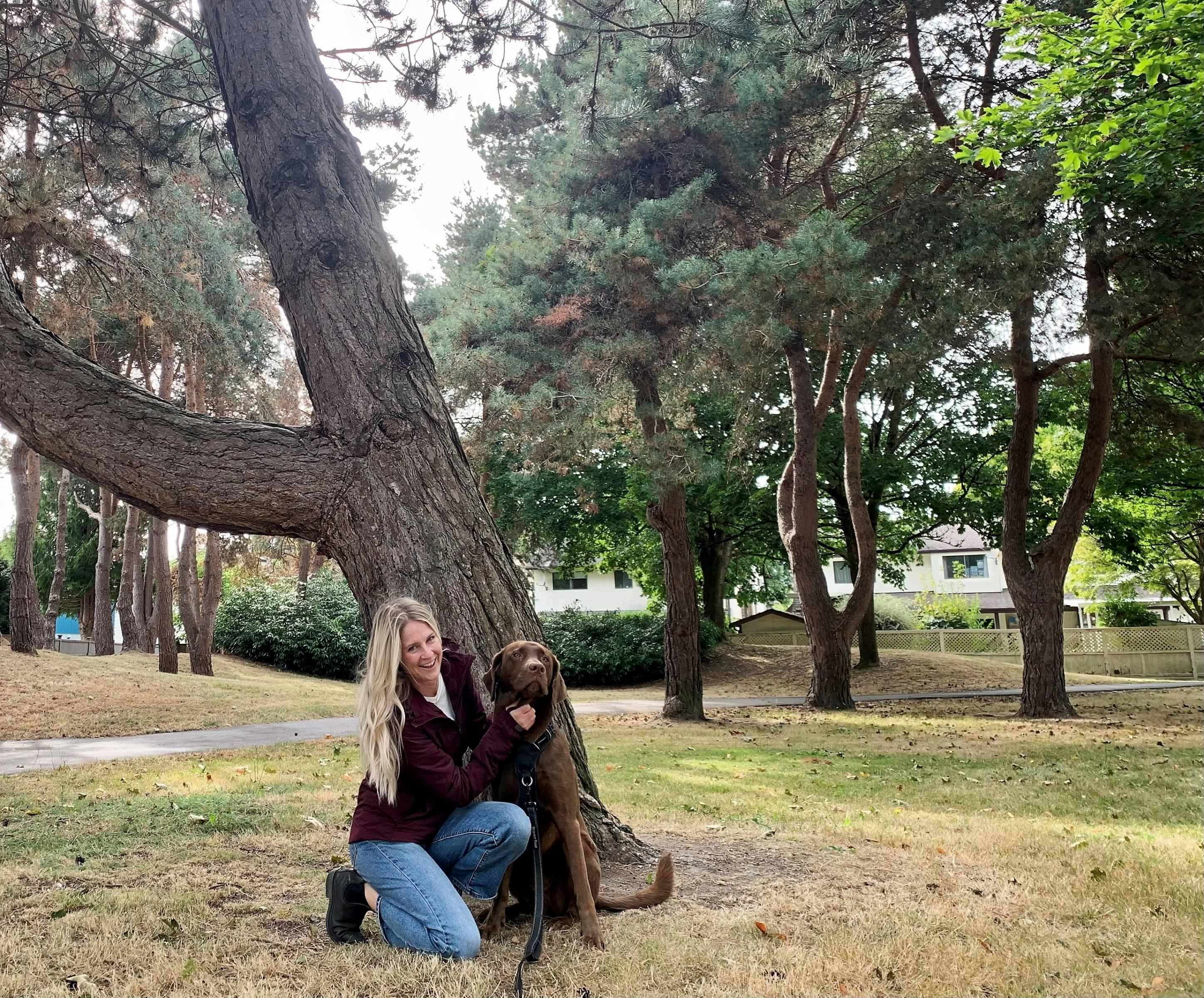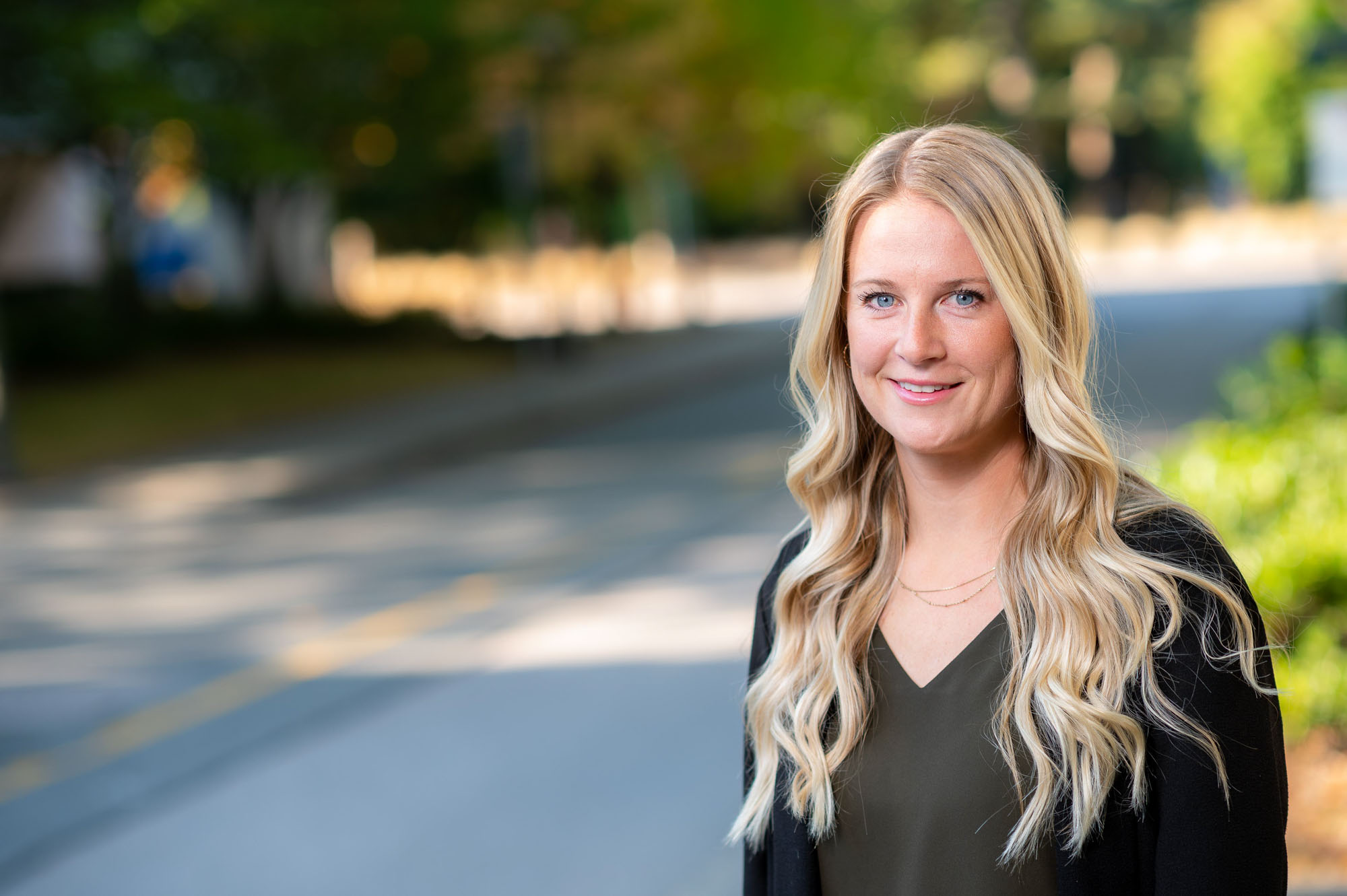Rachel Ramsden
Being a Public Scholar means advancing academic research that provides real-world benefit to our communities and for the public good. As a researcher interested in conducting community-driven research and capturing children’s voices, the Public Scholars Initiative provides support to extend my work directly in partnership with local community partners. It also means prioritizing the creation of innovative knowledge outputs that transcend the traditional PhD dissertation in order to bridge academic research into direct application.
Research description
Playing outdoors in the early years supports children to be more active, contributes to their overall development and enhances their well-being. With over 60% of Canadian children attending some form of child care, these environments play a pivotal role in a child’s life, with many children spending most of their waking hours in care. Outdoor spaces within a child care setting play an important role in determining the frequency, duration, quality and type of play a child will participate in each day. Using quantitative and qualitative data from the PROmoting Early Childhood Outside study, my doctoral research aims to understand children’s outdoor play movements, behaviours and perspectives across child care centres in BC. Through a mixed-methods approach, children are also able to engage with the planning and design of their outdoor play space throughout this study. The findings from this research will contribute to the creation of a knowledge mobilization tool that supports local government and community partners to enhance children’s outdoor play through evidence-based child care design and practices.
What does being a Public Scholar mean?
Being a Public Scholar means advancing academic research that provides real-world benefit to our communities and for the public good. As a researcher interested in conducting community-driven research and capturing children’s voices, the Public Scholars Initiative provides support to extend my work directly in partnership with local community partners. It also means prioritizing the creation of innovative knowledge outputs that transcend the traditional PhD dissertation in order to bridge academic research into direct application. The Public Scholars Initiative was a large part of my decision to continue my PhD at UBC as I sought opportunities and experiences that supported students to consider how research can be re-imagined throughout the course of their studies.
In what ways do you think the PhD experience can be re-imagined with this Initiative?
The Public Scholars Initiative provides support for PhD students to pursue alternate forms of scholarly outputs beyond the traditional academic requirements. It also provides opportunities for graduate students to consider how to prioritize community-driven research through engagement and connections with partner organizations. This program also serves an important role in the PhD experience by supporting innovative forms of academic research and convening a cohort that can collectively support one another.
How do you envision connecting your PhD work with broader career possibilities?
Building connections with local government provides an opportunity to explore future partnerships that span academia, community and industry. My research aims to strengthen the existing connections I have with government entities and determine how to better convey knowledge in a meaningful way. As a Public Scholar, I will have the supports to extend my research findings across multiple disciplines and cross-collaborate with community partners. These connections allow this research work to expand across the traditional disciplinary boundaries of public health, early childhood education and urban and regional planning. It also supports opportunities to engage in diverse avenues of applied community-based research, and career paths within and beyond academia.
How does your research engage with the larger community and social partners?
This research project partners with local municipalities to produce research outputs that resonate with industry, organizations and individuals that create and support outdoor child care spaces in BC. This work also requires partnership and collaboration with child care centres, early childhood educators, children and their families. In addition, the BC Children’s Hospital Digital Lab is collaborating on this project to produce an innovative multimedia tool that conveys the results of this study in a meaningful way. This knowledge mobilization tool will provide specific recommendations to local government and community partners on child care space planning and design that supports outdoor play.
Why did you decide to pursue a graduate degree?
I decided to pursue a PhD following years of experience working in municipal government. I recognized a need for additional tools and resources that support government and community partners to mobilize academic findings into policies and programs. Combined with a passion for children's health, development and well-being, I knew that pursuing a PhD would support my goals to produce new academic output formats for government and enhance children's outdoor play opportunities.
Why did you choose to come to British Columbia and study at UBC?
I grew up locally in Richmond, BC and had the opportunity to attend UBC for my undergraduate degree and Masters degree. As an undergraduate student, I was a member of the UBC women’s varsity soccer team and I was grateful to experience a supportive community and academic environment. UBC also offered opportunities to connect with nearby nature (forests, mountains and the ocean), which has always been important in my research work and my own personal life. When it came to selecting a school for my PhD studies, UBC was a comforting choice and provided an opportunity to pursue my academic goals under the leadership of Dr. Mariana Brussoni and Dr. Ian Pike and continue to study at the School of Population and Public Health.







